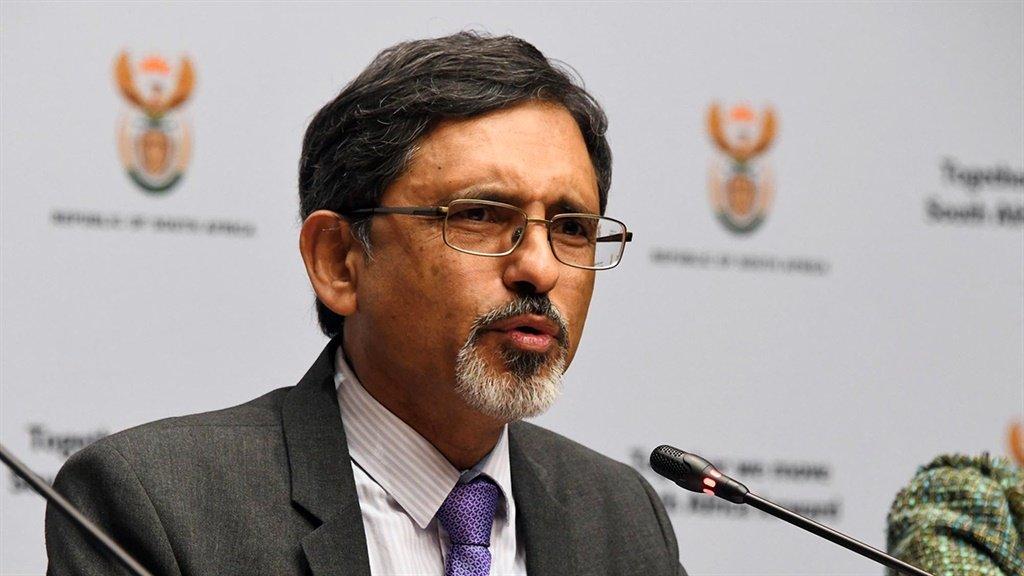Africa-Press – South-Africa. It’s time to “up the ante” and put pressure on rich nations to act with more urgency in finalising arrangements on the $8.5 billion offer to help South Africa decarbonise, says Trade, Industry and Competition Minister Ebrahim Patel.
The minister spoke at the sixth meeting of the Presidential Climate Change Commission (PCCC) on Friday.
It’s been more than six months since the US, UK, France, Germany, and EU pledged to mobilise $8.5 billion (~R134.5 billion) to assist South Africa’s decarbonisation efforts. The funding is directed at assisting the electricity sector, which is dominated by coal and supporting the development of new sectors such as green hydrogen and electric vehicles.
Head of the Presidential Climate Finance Task Force, Daniel Mminele, who attended the PCCC’s meeting, shared that several details to finalise the offer are still being worked out. This includes determining how much will be grant funding and the extent of the concessional finance. The country wants the funds to support its development objectives and not put the fiscus in a worse position.
Mminele shared that by the time COP27 comes later this year, there would likely be more clarity on the way forward.
But the PCCC was not satisfied with the progress made so far, and they want to see some development before COP27, which will be held in Cairo. Deputy chairperson of the PCCC, Valli Moosa, particularly expressed concerns that over the years, ministers from rich nations, who had no authority to make financial decisions for their countries, would often make big commitments at COP and nothing would come of it.
“We need to up the ante. From this discussion, it is clear that the commission is not satisfied with the progress and we need to say that to the rich countries. There would not be a point for us waiting until COP27 to say that,” said Moosa. “We want you (Mminele) to be able to say to them that we are unhappy with the progress. We are not happy at all,” he said.
Patel pointed out that perhaps state intervention is required to get more momentum.
“We must find a way of increasing the pressure points on our counterparts because Daniel and his team is doing all the work excellently. We can’t ask for better technical work. But they are constrained by the appetite and the urgency of their counterparts,” said Patel.
Q&A with Daniel Mminele on COP billions: When will the first money start to flow?
The minister said he heard that discussions with the French and German representatives have been more helpful than those with the UK and the US. He shared that he spoke to German Chancellor Olaf Scholz’s advisor this week, where he raised concerns that South Africa had been bold at COP26 and understood counterparts would be too, but the latter does not appear to have materialised.
Patel said the $8.5 billion is only the first bucket of funding that should flow within the next three to five years and that we ought to be already having discussions on the next phase of funding.
“… Some of the decisions companies make now, the market opportunities require a degree of certainty about the long term fund flows. We can’t address the second bucket only three years from now. We have to begin that discussion,” he said.
In response Mminele said that there was a “lull” after the political declaration was first announced last year. But since this year, there has been a lot of momentum, and there are discussions almost daily on various issues with the counterparts.
He pointed out that the declaration at COP26 was not a loan agreement that gave rise to legal obligations that South Africa can now call upon. “I would say, what we were dealing with, is a strong commitment of conditional intent,” said Mminele.
Mminele said that South Africa is working with five different jurisdictions and some development finance institutions also have different legal requirements to consider.
Rich nations offer debt guarantees on South African climate deal
While South Africa is asking questions about the money flow, the international partners also want to know what South Africa’s investment plans are and how we will direct the funds.
The partners have presented details on the offers – which are being analysed with National Treasury. They, in turn are asking how the money would flow – for instance, if it would go through the fiscus or if it would go straight to entities or if a special purpose vehicle would be created, Mminele explained. They also want information on the projects and how ready they are. This is all work alongside the PCCC, Eskom and Treasury, Mminele said.
There may be an opportunity to express frustrations with the pace of things at the upcoming G7 Summit. President Cyril Ramaphosa is a special guest invited to the summit. Mminele said that there have also been opportunities this week to discuss the partnership with the German chancellor’s visit to South Africa.
“There is certainly no shortage of wanting to see the process move forward,” said Mminele.
“I am sorry I can’t say the money was transferred yesterday, but we are working towards that,” he added.
For More News And Analysis About South-Africa Follow Africa-Press






